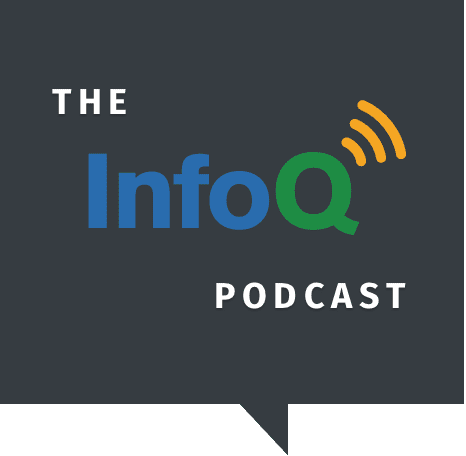InfoQ Homepage Podcasts
-
Building Green Software with Anne Currie and Sara Bergman
What Does It Mean to Be Green in IT? That's the question that begins chapter one in Building Green Software. In this episode, Thomas Betts is joined by two of the book's authors, Anne Currie and Sara Bergman. The discussion covers general themes and digs into some practical advice for all software practitioners.

-
Susan Shu Chang on Bridging Foundational Machine Learning and Generative AI
Live from the QCon San Francisco Conference, we are talking with Susan Shu Chang, Principal Data Scientist at Elastic. Chang shares insights on bridging foundational machine learning with generative AI, emphasizing the importance of deploying ML models effectively, leveraging collaborative tools for prototyping, and aligning team roles with the ML life cycle to create scalable AI solutions.

-
Key Trends from 2024: Cell-Based Architecture, DORA & SPACE, LLM & SLM, Cloud Databases and Portals
In this year-in-review episode, Daniel Bryant, along with InfoQ podcast hosts Thomas Betts, Shane Hastie, Srini Penchikala, and Renato Losio, reflect on the trends and developments of 2024 across key domains: architecture, culture and methods, AI and data engineering, and cloud and DevOps.

-
Generally AI: Time to Travel
In this special episode, Roland Meertens and Anthony Alford meet at QCon San Francisco to discuss Time and Travel. Meertens presents three case studies where temporal misunderstandings in data science led to poor predictive performance. Alford tells the story of how the first Transcontinental Railroad shortened travel times between the East and West Coasts of the United States.

-
InfoQ Java Trends Report 2024 - Discussing Insights with Ixchel Ruiz and Gunnar Morling
In this episode, Ixchel Ruiz and Gunnar Morling sat down with podcast host Michael Redlich, lead editor of the Java topic at InfoQ, to discuss the recent publication of the InfoQ Java Trends Report. Topics covered included: the advantages of the Java six-month release cadence; Project Lilliput and compact object headers; nullability in Java; the impact of Python; and the One Billion Row Challenge.

-
Techniques for Improving Communication and Connection in Technical and Social Settings
In this podcast Shane Hastie, Lead Editor for Culture & Methods spoke to Geoffrey Huck about how software engineers can improve their communication skills, particularly with non-technical colleagues, by actively seeking feedback, using analogies and stories to explain technical concepts and varying their speaking style to keep audiences engaged.

-
Intentional Culture and Continuous Compensation: An Interview with Austin Vance
In this podcast Shane Hastie, Lead Editor for Culture & Methods spoke to Austin Vance, about the importance of intentional onboarding and culture-building, as well as his company's unique approach to compensation and the role of managers in retaining top talent.

-
Building Safe and Usable Medical Device Software: A Conversation with Neeraj Mainkar
In this podcast Shane Hastie, Lead Editor for Culture & Methods spoke to Neeraj Mainkar about the challenges of developing safe and usable medical device software in areas where software bugs can have life-and-death consequences, and how to approach these challenges through rigorous processes, user-centered design, and leveraging emerging technologies.

-
Leveraging AI Platforms to Improve Developer Experience – From Personal Hackathon to AI at Scale
In this podcast Shane Hastie, Lead Editor for Culture & Methods spoke to Olalekan Elesin about how generative AI tools can elevate developer experience by enabling engineers to be more creative and productive. He stresses the need to manage expectations, develop prompt engineering skills, and maintain a focus on security and customer privacy when leveraging these tools in an enterprise setting.

-
Building Effective Engineering Teams and Avoiding Cargo Cult Practices
In this podcast Shane Hastie, Lead Editor for Culture & Methods spoke to David Guttman about building effective engineering teams, avoiding common pitfalls, critiques of cargo cult practices, building great engineering culture and the importance of individual accountability.


